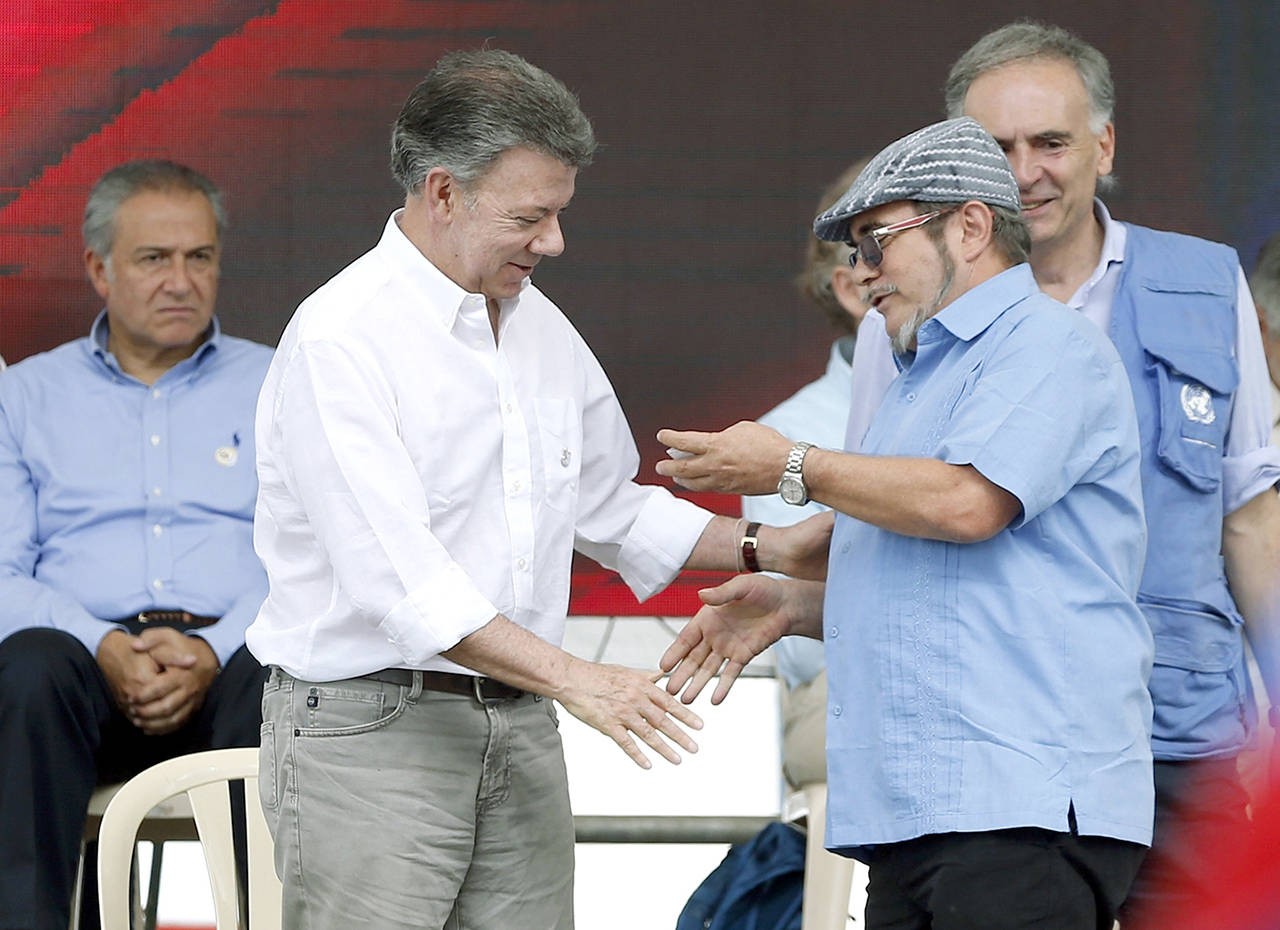Associated Press
MESETAS, Colombia — Colombia reached a major milestone on its road to peace Tuesday as leftist rebels relinquished some of their last weapons and declared an end to their half-century insurgency.
The historic step was taken as President Juan Manuel Santos traveled to this demobilization camp in Colombia’s eastern jungles to join guerrilla leaders as they begin their transition to civilian life.
In a short, symbol-filled ceremony, United Nations observers shut and padlocked the last containers storing some of the 7,132 weapons that members of the Revolutionary Armed Forces of Colombia have turned over the past few weeks at 26 camps across the country. Yellow butterflies were released and an AK-47 converted into an electric guitar rang out plaintive chords in honor of the long conflict’s victims.
“By depositing the weapons in the U.N. containers, the Colombians and the entire world know that our peace is real and irreversible,” Santos, winner of last year’s Nobel Peace Prize, told an audience of former rebel fighters dressed in white shirts with cuffed hands shaped in a heart and a Spanish hashtag reading “Our only weapon are words.”
Though hundreds of FARC caches filled with larger weapons and explosives are still being cleared out, the U.N. on Monday certified that all individual firearms and weapons, except for a small number needed to safeguard the soon-to-disband camps, have been collected.
“In a world convulsed by old and new forms of violence, by conflicts whose protagonists appear irreconcilable … a successful process constructing peace in Colombia is also reason for hope and a powerful example for the international community,” said Jean Arnault, head of the U.N. peace mission in Colombia.
The day put Colombia one step closer to turning a page on Latin America’s longest-running conflict, which caused at least 250,000 deaths, left 60,000 people missing and displaced more than 7 million.
After years of thorny negotiations, the rebels reached an agreement with the government last year to give up their weapons and transition into a political party. But implementing the accord has been slow. The initial deal was narrowly rejected in a national referendum, congress has struggled to pass laws implementing the revised accord, and opposition lawmakers are threatening to overturn key aspects of the agreement if they win the presidential election next year.
Rodrigo Londono, the FARC’s top commander, complained about the bureaucratic, legal and political “traps” in a sternly worded speech in which he called on the government to live up to its end of the bargain and not simply rejoice at seeing its former combat enemies disarmed.
He questioned why imprisoned rebels who were given amnesty six months ago remain in jail and complained about the state of the Mariana Paez demobilization camp where the ceremony was taking place. It was supposed to contain concrete housing units with running water, kitchens and electricity, but instead has been likened to a refugee camp with rebels living under plastic tarps.
“The state of infrastructure in this rural zone is the best testimony of the slow pace in which the national government is fulfilling what we agreed to,” Londono said.
Still, he and other rebels showed no outward sign of regretting their decision to abandon the battlefield.
Talk to us
> Give us your news tips.
> Send us a letter to the editor.
> More Herald contact information.

























